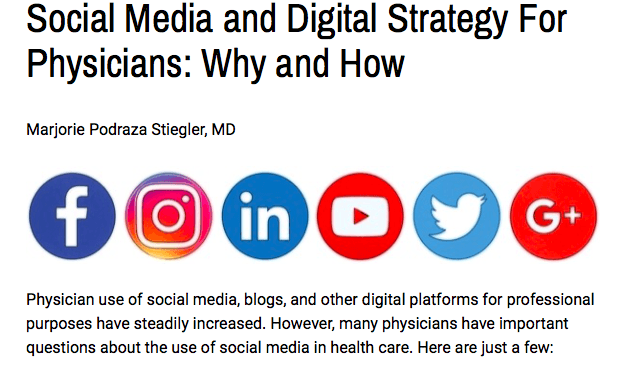Physicians should use social media professionally. While some doctors think social media is risky, it is actually incredibly important for many stakeholders – other doctors, patients, and the general public. It can also help advance physicians’ careers or grow their practices. By following a few simple rules, doctors can use social media successfully and without fear of jeopardizing their reputations, getting caught in inappropriate patient interactions, or increasing medical liability.

- Many interactions online are conversational – you’ll respond to others and they will respond to you. While sharing your expertise, be clear that you are providing general educational information, and not specific medical advice to any individual or initiating a patient-physician relationship. This can typically be done with a simple disclaimer in your bio on the platforms you choose to use, and avoiding language that suggests you are recommending a particular therapy.
- Be mindful of HIPPA and patient privacy. Do not post information that could identify a patient, whether directly or indirectly. Physicians can get in trouble by posting real patient information even under the guise of a ‘hypothetical’ case. The patient may be identifiable to readers who know the physician’s practice location and the date or time of the post.
- Never be distracted by social media during patient care. This should be obvious, but warrants a quick mention because such activity is not only a safety hazard, but also represents a permanent time-stamped record that will surely be scrutinized if any untoward events occur. Absolutely everything that is posted online (even in ‘private’ or ‘secret’ forums) should be considered both permanent and potentially public.
- Use a professional tone always. Never post negative content about your employer, partners, colleagues, or institution. Be sure that you are aware of and following your institution’s social media policy if one exists. And of course, ensure that your bio and your messages do not appear to speak on behalf of your organization unless you are specifically authorized to do so.
- Conflicts of interest must be disclosed if you are posting about a device, medication, or service for which you receive compensation in any way. This is required not only by professional standards, but also by the FTC.
Read more about how to get started – and why you should – in my review article.








